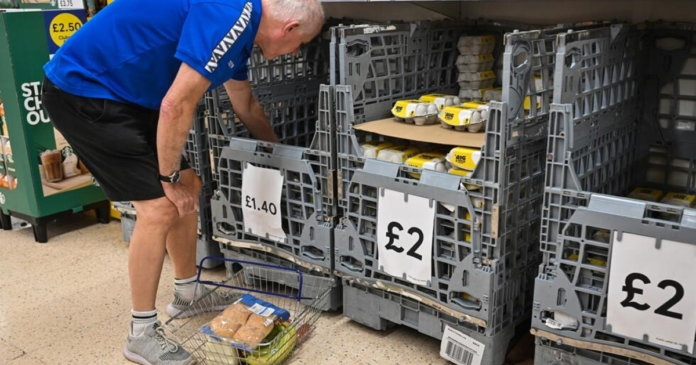Data released on Wednesday revealed unexpectedly low inflation in Britain in August, which gave rise to the possibility that the Bank of England’s widely anticipated interest rate increase this week might be the final one for a while.
UK inflation drop: On the eve of the BoE’s most recent monetary policy decision, the Office for National Statistics (ONS) released a statement stating that the Consumer Prices Index decreased marginally from 6.8 percent in July to 6.7 percent.
It surprised forecasts for an acceleration to 7.1 percent due to rising energy prices because it was the lowest since February 2022.
With the US Federal Reserve expected to hold rates later in the day as a result of Wednesday’s news, the pound fell about 0.4 percent to $1.2347 in morning trade.
Jeremy Hunt, the finance minister for his Conservative government, claimed that the effort to reduce inflation is “working” but acknowledged that the rate is “still too high”.
It comes after data revealed that eurozone inflation also modestly decreased in August.
According to Swissquote Bank analyst Ipek Ozkardeskaya, “the surprise decline in UK inflation triggered knee-jerk selloff in sterling as today’s data cements the expectation that the Bank of England’s next rate hike could also be its last.”
strike by health workers
Despite the decline, British inflation is still the highest among the G7 industrialised nations, having peaked in October of last year at 11.1 percent, a 41-year high.
Workers in the public and commercial sectors have been regularly stopping work for almost 18 months because their salary has not kept up with inflation.
In the most recent walkout, junior doctors and medical consultants who work for England’s National Health Service staged the nation’s first-ever joint strike on Wednesday.
In an effort to cool the raging inflation, the BoE has raised its benchmark interest rate 14 times in a row, to the present level of 5.25 percent.
According to Capital Economics analyst Paul Dales, the statistics “probably won’t be enough to stop the BoE from raising interest rates… to 5.50 percent tomorrow.”
However, it affirms our assertion that this will be the final walk.
power effect
Food prices increased less in August than they had a year earlier, according to the ONS. Higher energy prices could only partially offset this effect.
According to ONS Chief Economist Grant Fitzner, “the rate of inflation eased slightly this month driven by falls in the often erratic cost of overnight accommodation and air fares, as well as food prices rising by less than they did at the same time last year.”
This was somewhat offset by an increase in the cost of fuel and diesel, which had experienced a sharp fall at this time last year after reaching record highs in July 2022.
The rise in oil prices this week towards $100 per barrel has economists concerned that it may spark new inflationary pressures.
Oil prices have increased largely as a result of output reductions by major producers Russia and OPEC’s dominant Saudi Arabia, which will continue at least through the end of the year.

